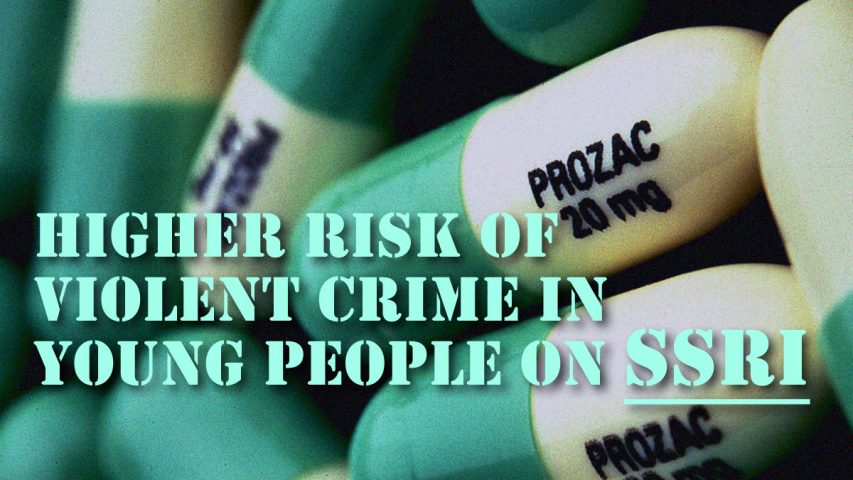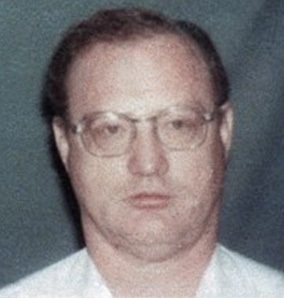- Have any questions? Contact us!
- info@dr-rath-foundation.org

A Fresh Approach: The Importance Of Clean Water For The Human Body Cells
July 13, 2017
New meta-analysis provides further proof of the benefits of magnesium for high blood pressure
August 3, 2017BBC investigation uncovers disturbing evidence of link between anti-depressant drugs and homicide

A BBC investigation in the UK has uncovered further disturbing evidence of a link between anti-depressant drugs and homicide. After submitting a Freedom of Information request to the UK’s Medicines and Healthcare products Regulatory Agency (MHRA), the broadcaster discovered that, over the past three decades, 28 homicides committed in the country have been associated with people taking Selective Serotonin Reuptake Inhibitors (SSRIs). Discussing the finding, Professor Peter Tyrer, a psychiatrist at Imperial College London who has been studying SSRIs, stated: “It’s happened just too frequently with this class of drug to make it random.”
A class of drug that includes medications such as Prozac, Paxil and Zoloft, SSRIs have received mounting attention in recent years with reports suggesting they can be responsible for devastating side-effects such as psychosis and extreme violence. An accusation predictably disputed by pharma companies, for whom mental health drugs raked in almost 35 billion dollars in 2015, the dangers of these patented chemicals are being deliberately downplayed by the media and even promoted as supposedly posing “little risk to babies” when taken in pregnancy.
The James Holmes mass shooting

James Holmes
In the United States, arguably the most notorious recent incident involving SSRIs occurred in 2012 when James Holmes murdered 12 people and injured 70 in a mass shooting in a Colorado cinema. A twenty-four-year-old PhD student, Holmes had been taking Sertraline (Zoloft), a SSRI, and had no previous history of violence or interest in guns. Commenting on the case, a UK psychiatrist, Professor David Healy, who interviewed Holmes and was an adviser to his defense team, stated: “I believe if he hadn’t taken the Sertraline he wouldn’t have murdered anyone.” Holmes received one of the longest prison sentences in United States criminal history – 12 life sentences plus 3,318 years in prison.
The Joseph Wesbecker mass shooting

Joseph Wesbecker By Lord Gøn
Pharma companies have a long history of trying to cover up the links between SSRIs and violence. Take the case of Joseph Wesbecker, a 48-year-old man, who in 1989 took a gun to his former workplace in Louisville, Kentucky, killing 8 people and injuring 12 before committing suicide. The shootings occurred less than a month after Wesbecker had started taking Prozac. A lawsuit was subsequently brought against the drug’s manufacturer, Eli Lilly, charging that Wesbecker’s use of Prozac had contributed to his actions. But as the New York Times later reported in its review of a book, Prozac Backlash, on the dangers of SSRIs, “the facts were carefully manipulated, a secret settlement was made between plaintiffs and the drug company even as the trial continued, and Prozac avoided a warning label about possibly violent or suicidal behavior.” Over the decades since SSRIs were first introduced, billions of dollars are believed to have been paid out by drug manufacturers in settlement of lawsuits filed by patients, victims, and families.
Higher risk of violent crime in young people on SSRIs

By Rainerzufall1234 (Own work) [CC BY-SA 4.0], via Wikimedia Commons
While the arguments over the risks of SSRIs will no doubt continue for some time yet, one thing is already for sure in that the pharma industry intends to continue making vast profits from them for as long as it can get away it. To achieve this, just as it similarly does with the patented drugs it promotes for other health problems, it has to ensure that public awareness of harm is minimized. Meanwhile, of course, claims of their supposed safety will continue to be trumpeted as regularly and prominently as possible. In this sense, we should never doubt that the pharma industry’s multibillion-dollar ‘business with mental health’ is just as cynical as its physical health counterpart. The bottom line, just as it historically always was, is profit over life.



